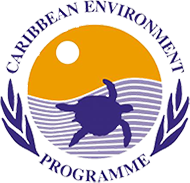Ministers encouraged to include and develop environmentally and financially sustainable partnerships
Tourism, Fisheries and Agriculture are the leading industries contributing to the economic growth of many Caribbean islands. The social, economic and environmental development of the islands depend on these industries, most of them tied intricately to the environment.
Increased economic growth often means a better status of life for many citizens, however, if they do not practice sustainable consumption and production- waste generation is also likely to increase.
Over 541,000 tonnes of waste is generated daily in Latin America and the Caribbean, 90% of which is destined for disposal sites, landfills and garbage dumps.
With waste generation steadily increasing and the numbers expecting to increase to 25% by 2050- Caribbean small island developing states stand to face great impacts in their economic, social and environmental development if waste management issues are not addressed.
Recognizing the need for coordinated efforts to tackling waste management, under the leadership of UN Environment, through its Caribbean Sub-Regional Office, the High-Level Forum of Caribbean Ministers responsible for Waste Management was held in Montego Bay, October 11th to 12th, 2018 with the aim to help ministers define regional and island-specific waste management priority actions.
The ministers were encouraged to include and develop environmentally and financially sustainable partnerships, systems and strategies as well as implement innovative solutions to address waste management outcomes.
Vincent Sweeney, Head of the Caribbean Sub-Regional Office, UN Environment, during a press conference, in highlighting the outcomes of the meeting said - “We identified a number of opportunities to address some priorities of the region, including pollution, landfill management and the plastic bag ban. We agreed on a way forward to continue our collaborations and ensure that issues are addressed at the political level, possibly through the Caribbean Community (CARICOM) Secretariat, the various CARICOM councils, through meetings with regional environmental ministers and the United Nations,”
The ministers have committed to an Action Plan which includes improving the management of waste infrastructure, reducing pollution from waste, improving recycling and resource recovery and strengthened partnerships.






